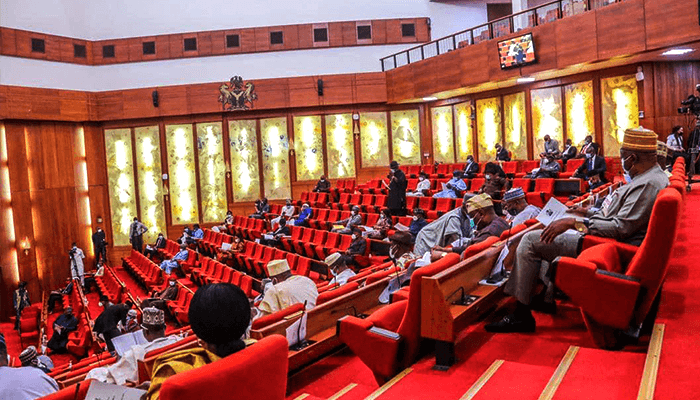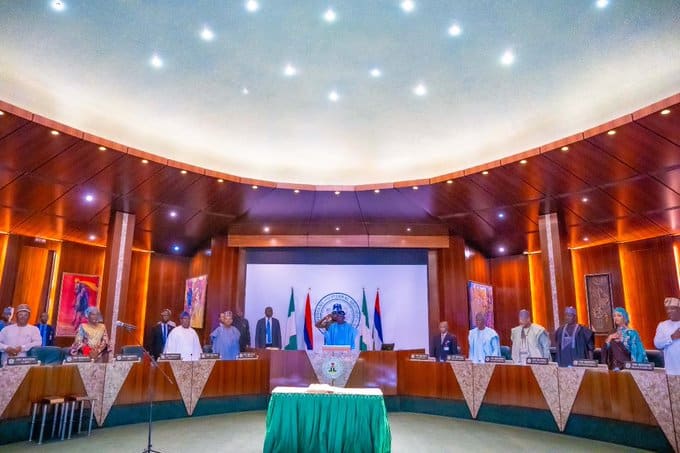National news
Senate Moves to Restrict Foreign Currencies in Domestic Transactions

The bill seeking to prohibit the use of foreign currencies for transactions and payments in Nigeria has passed its first reading in the Senate.
Titled “A Bill for an Act to Alter the Central Bank of Nigeria Act, 2007, No. 7, to Prohibit the Use of Foreign Currencies for Remuneration and Other Related Matters,” the proposed legislation was sponsored by Senator Ned Nwoko, who serves as the Chairman of the Senate Committee on Reparations and Repatriations
EDITOR’S PICK
-
Ademola Lookman Crowned African Footballer of the year
-
CAF 2024 Awards: Full List of Winners
-
Italy or Germany to host UEFA Nations League Final
The bill aims to ensure that all forms of payments, including salaries and other financial transactions within the country, are exclusively conducted in the local currency, the Naira.
Senator Nwoko emphasized that the widespread adoption of foreign currencies such as the Dollar, Pound Sterling, and Euro in Nigeria’s financial system undermines the Naira’s value and weakens the country’s economic stability.
By addressing this issue, the legislation seeks to bolster Nigeria’s economic independence and restore confidence in its monetary system.
In presenting the bill, Senator Nwoko argued that the continued reliance on foreign currencies is a colonial relic that has persisted to the detriment of Nigeria’s economic sovereignty.

He noted that the excessive use of foreign currencies for domestic transactions creates a parallel financial ecosystem that marginalizes the Naira, making it difficult for the local currency to compete and thrive.
This practice, according to the Senator, perpetuates inflation, destabilizes exchange rates, and weakens the purchasing power of the average Nigerian.
He further highlighted that the dominance of foreign currencies in Nigeria has fostered a culture where the Naira is viewed as inferior, a perception that discourages foreign investment and limits the country’s economic potential.
Nwoko stressed that achieving true economic independence requires making the Naira the sole legal tender for all transactions within the country.
The proposed law, if passed, would make it illegal for individuals or organizations to pay wages, conduct business transactions, or settle debts using any foreign currency.
Exceptions may apply for international trade, foreign investments, or other situations requiring foreign exchange, but these would be regulated under stricter guidelines.
FURTHER READING
- Naira Appreciates Against Dollars Despite Rise in Inflation
-
Tinubu Set to present adjusted Budget to National Assembly Wednesday
-
We Backed Dangote Refinery Loan with $1bn – NNPCL
Supporters of the bill argue that it is a necessary step toward stabilizing the Naira and strengthening Nigeria’s financial autonomy.
Critics, however, have expressed concerns about implementation challenges, especially in sectors where foreign currency transactions are prevalent.
The bill’s progress will now depend on subsequent readings and deliberations in the Senate, where lawmakers are expected to weigh its implications for Nigeria’s economy and global trade relationships.
Click Here to Watch Video of The Week
Advertise or Publish a Story on EkoHot Blog:
Kindly contact us at [email protected]. Breaking stories should be sent to the above email and substantiated with pictorial evidence.
Citizen journalists will receive a token as data incentive.
Call or Whatsapp: 0803 561 7233, 0703 414 5611

















You must be logged in to post a comment Login